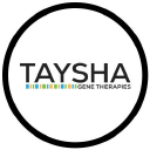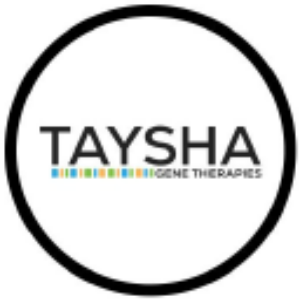Welcome to our dedicated page for Taysha Gene Therapies news (Ticker: TSHA), a resource for investors and traders seeking the latest updates and insights on Taysha Gene Therapies stock.
Taysha Gene Therapies, Inc. (TSHA) is a clinical-stage biotechnology company pioneering AAV-based therapies for severe genetic disorders of the central nervous system. This page aggregates official news and press releases related to TSHA's innovative pipeline, regulatory progress, and strategic initiatives.
Investors and industry professionals will find timely updates on clinical trial developments, including TSHA-102 for Rett syndrome, regulatory designations like RMAT status, and research collaborations advancing gene therapy science. The curated collection serves as a centralized resource for tracking milestones in TSHA's mission to address unmet needs in monogenic CNS diseases.
Content spans multiple categories including therapy development updates, manufacturing advancements, partnership announcements with academic institutions, and financial disclosures. All materials maintain factual reporting on completed events without speculative commentary.
Bookmark this page for streamlined access to verified information about TSHA's progress in developing transformative genetic medicines. Check regularly for new developments in their clinical programs and scientific innovations.
Taysha Gene Therapies (Nasdaq: TSHA) will report its financial results for Q2 2022 on August 11, 2022, at 8:00 AM ET. This pivotal-stage company focuses on developing AAV-based gene therapies for central nervous system diseases. The conference call will provide insights into the company's financial performance and updates on its gene therapy pipeline. Taysha's mission is to eradicate monogenic CNS diseases through rapid translation of treatments from research to clinical applications, leveraging a fully integrated platform to improve patients' lives.
Taysha Gene Therapies (Nasdaq: TSHA) announced its participation in two upcoming conferences: the BTIG Biotechnology Conference on August 8, 2022, and the Wedbush PacGrow Healthcare Virtual Conference on August 10, 2022. At the BTIG conference, Suyash Prasad will discuss AAV Gene Therapies for CNS disorders. The Wedbush event will feature a panel on UltraOrphan diseases. Webcasts will be available on Taysha's website for 90 days post-event, highlighting the company's commitment to developing gene therapies for monogenic CNS diseases.
Taysha Gene Therapies (Nasdaq: TSHA) announced its participation in the William Blair Biotech Focus Conference 2022 on July 13, 2022. The company's President and CEO will join a panel discussion titled “AAV Gene Therapy: Delivery and Beyond” at 10:00 am ET. This event focuses on the company's mission to develop and commercialize innovative AAV-based gene therapies for treating monogenic central nervous system diseases. A webcast of the discussion will be available on Taysha's corporate website and archived for 60 days.
Taysha Gene Therapies (Nasdaq: TSHA) announces that its annual stockholder meeting will take place on June 17, 2022, at 10 am ET via webcast. The event aims to provide stockholders with updates on the company's progress in developing AAV-based gene therapies for monogenic diseases affecting the central nervous system. Interested parties can access the webcast through the Taysha corporate website. A copy of the 2021 annual report is also available online.
Taysha Gene Therapies (Nasdaq: TSHA) will participate in several upcoming healthcare conferences, including the Jefferies Healthcare Conference on June 8, Goldman Sachs 43rd Annual Global Healthcare Conference on June 14, BIO International Convention on June 15, and JMP Securities Life Sciences Conference on June 16. CEO RA Session II will join a panel discussion at the BIO International Convention, focusing on 'A New Era in Gene Therapy.' Webcasts will be available on the company's website for 90 days.
Taysha Gene Therapies (Nasdaq: TSHA) announced the initiation of clinical development for TSHA-102 targeting Rett Syndrome and received orphan drug designation for TSHA-120 for Giant Axonal Neuropathy (GAN). The company expects preliminary Phase 1/2 data for TSHA-102 by year-end 2022 and recently completed a GMP batch for TSHA-120. Financially, Taysha reported a net loss of $50.1 million for Q1 2022, up from $32.0 million year-over-year. Existing cash should fund operations into Q4 2023.
Taysha Gene Therapies, Inc. (Nasdaq: TSHA) will release its financial results for Q1 2022 on May 16, 2022, at 8 AM Eastern Time. The pivotal-stage gene therapy company focuses on AAV-based treatments for monogenic CNS diseases. Following the earnings call, investors will receive updates on the company's progress and pipeline. Interested participants can join the call by dialing 877-407-0792 (toll-free) or 201-689-8263 (international), with the conference ID 13729044. Further information is accessible through their webcast.
Taysha Gene Therapies (Nasdaq: TSHA) announced participation in the 25th Annual Meeting of the American Society of Gene & Cell Therapy in Washington, D.C., from May 16-19, 2022. The company will present oral and poster presentations featuring key gene therapy advancements aimed at treating monogenic diseases of the central nervous system. Notable presentations include the treatment approaches for Giant Axonal Neuropathy and Tauopathies. Additionally, Taysha will host a symposium discussing innovative strategies in gene therapy development.
Taysha Gene Therapies (Nasdaq: TSHA) announced the granting of orphan drug designation by the European Commission for TSHA-120, a gene therapy for giant axonal neuropathy (GAN). Clinical data shows a 10-point improvement in motor function by Year 3 compared to a natural decline of 24 points. Biopsy results indicate active nerve regeneration in patients. With 53 patient-years of safety data, TSHA-120 addresses a global patient population of 5,000 and offers a multi-billion dollar opportunity, as there are currently no approved treatments for GAN.
Taysha Gene Therapies (Nasdaq: TSHA) announced its participation in two upcoming events: the International Rett Syndrome Foundation (IRSF) Rett Syndrome Scientific Symposium and the ASCEND Rett Syndrome National Summit, both in Nashville, Tennessee, from April 26 to 30, 2022. Key presentations will include safety assessments of a miniMECP2 AAV9 vector for gene therapy and insights on caregiver perspectives. Taysha emphasizes its commitment to developing AAV-based gene therapies for monogenic CNS diseases, aiming to innovate treatments for both rare and common conditions.


